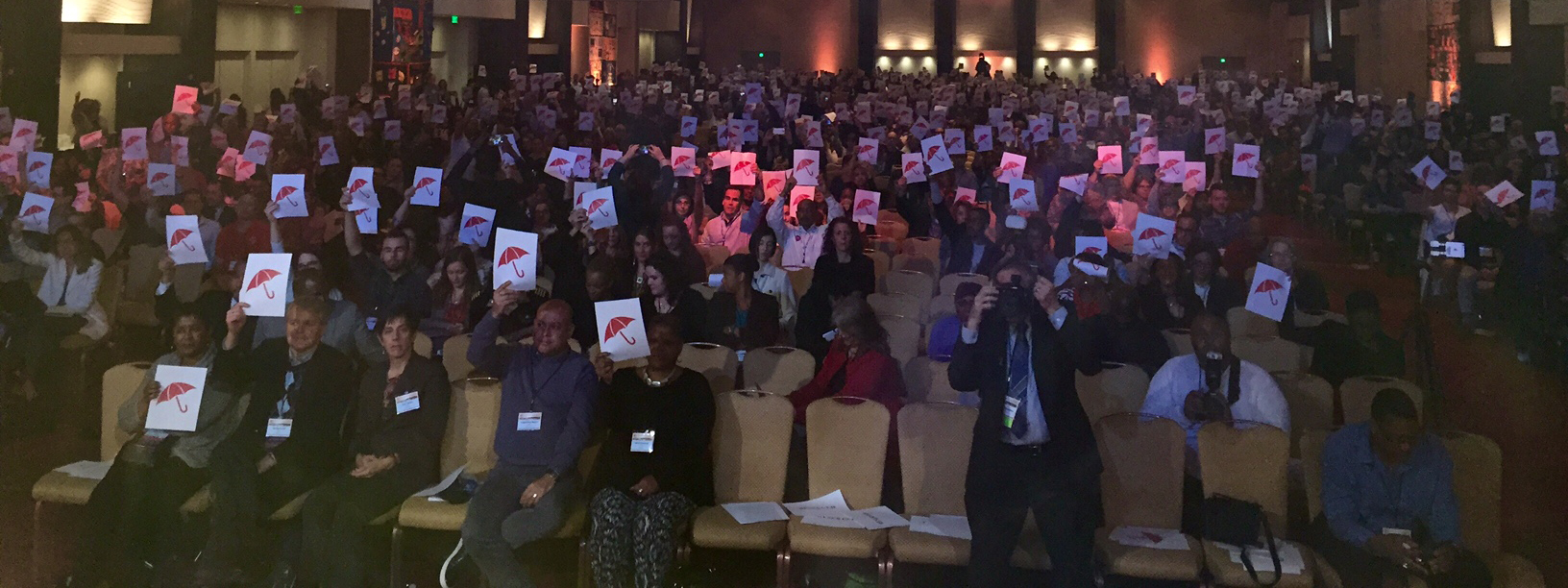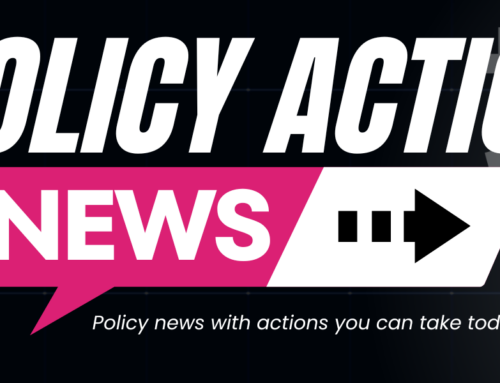Both documents represent missed opportunities to fully address the HIV epidemic in the U.S.
As researchers, government officials, policy experts and advocates gather for the National HIV Prevention Conference, a diverse coalition of networks of people living with HIV (PLHIV), and our key partners and allies, from all over the U.S. have joined together to express our deep dissatisfaction and disappointment regarding the National HIV/AIDS Strategy (NHAS): Updated for 2020 and the accompanying Federal Action Plan.
We have repeatedly attempted to engage in dialogue with and share our recommendations for the NHAS, but have been met with little interest from the Administration. The development and implementation of a National HIV/AIDS Strategy that included greater and more meaningful involvement of PLHIV and community partners would hasten progress in the effort to end HIV as well as be a powerful legacy for President Obama and subsequent administrations.
The Federal Action Plan is an underwhelming update and trumpets what has already been accomplished rather than providing specifics about what must be done. For example, citing the July 2014 issuance from the Department of Justice’s Best Practices Guidance informing state Attorney General’s about HIV criminalization concerns, while important, is not new.
In other cases, we see that mandates are not met. President Obama’s Executive Order, issued in July 2015, required the development of recommendations for increasing employment opportunities for PLHIV. Yet such recommendations are not evident in the Federal Action Plan. There also are no assigned roles for key federal agencies (including those responsible for HIV care and prevention) to identify and address employment needs, nor capacity building to support community-based efforts to do so.
We are disappointed to note that once again, as was the case throughout the Bush presidency, key stakeholder groups that are disproportionately impacted by the epidemic have been entirely omitted or miscategorized, including sex workers, immigrants and people of trans experience.
The Federal Action Plan also fails to set forth any mechanisms for involvement by people living with HIV, including PLHIV networks, in achieving critical goals, including universal viral suppression.
We are tired of having our vital concerns and expertise ignored or dismissed and being invited to participate at tables already set for us, with an entire menu already planned, and usually at the last minute. Since the first NHAS was released in 2010, we know our involvement, usually uninvited — perhaps sometimes unwelcome — has constructively helped to shape improvements in HIV prevention, care and treatment.
NHAS 2020 calls for “greater and more meaningful involvement of people living with HIV”. It is time to back up that rhetoric with specific steps to more proactively engage and more efficiently utilize the expertise of networks of people living with HIV.
We call for PLHIV to be seen as the subject matter experts on our lives—not merely as “patients,” “clients” or “consumers”—and to be included in meaningful and specific ways in the ongoing implementation, monitoring and evaluation of the National HIV/AIDS Strategy.
If we as a nation truly seek to end the epidemic, it will require more than biomedical interventions. It will require leadership by and partnership with the networks of PLHIV and every key population of people living with or at risk of acquiring HIV. Among our most pressing priorities are the following:
- We must include sex workers in every conversation, acknowledging that criminalization of sex work and the related policing of transgender people are directly linked to consistently worse health outcomes for communities affected by this criminalization.
- We must provide culturally relevant access to testing and healthcare for immigrants without criminalization and penalties, not only through Immigration and Customs Enforcement (ICE) facilities, but also through the providers that serve these communities.
- We must provide strong leadership against state and military laws that target PLHIV and provide for review of previous prosecutions.
- We must collect better housing data for those under the age of 18 who are living with or at risk of acquiring HIV and we must measure housing needs by assessing housing instability and not just homelessness.
- Rather than simply address discrimination with current laws, we must research and acknowledge HIV stigma to address it systematically with federal agencies, partners and federal grantees.
- PrEP is an important prevention strategy within a limited range of communities but for many transgender people and sex workers “test and treat” and “treatment as prevention” approaches, including PrEP, divert resources away from approaches that we know work, such as comprehensive peer-led prevention programs and advocacy to remove legal barriers, criminalization and policing of condoms and medications.
- We must immediately remove transgender people from the MSM (men who have sex with men) category to truly measure and address the epidemic in this community.
- Finally, we must act quickly and comprehensively to address the social and structural factors which continue to drive the incidence of HIV and health disparities in communities of color, particularly black gay men and black women, who remain severely disproportionately impacted by HIV.
We, PLHIV and our networks, as well as those allied with us, deserve and demand a better and more inclusive National HIV/AIDS Strategy that includes meaningful engagement for PLHIV networks and key population stakeholder groups to partner with the Interagency Working Group created in the Executive Order.
We demand to have meetings with the Office of National AIDS Policy, the Federal Interagency Working Group, the Health Resources and Services Administration (HRSA) and the Centers for Disease Control and Prevention (CDC) to discuss NHAS 2020 and its accompanying Federal Action Plan and the Community Action Framework that was developed without adequate community input.
This statement is supported by #PersistentAdvocates living with and affected by HIV.
This statement is reposted with permission from hivcaucus.org.

A strong show of support and solidarity for sex workers left out of the NHAS and Federal Action Plan, organized by advocates including PWN-USA, at the opening plenary for the 2015 National HIV Prevention Conference in Atlanta, December 6.





[…] “What would improve your ability to stay in care?” That is the fundamental question women with HIV sought to answer in a community-based participatory research project. 14 women living with HIV (WLHIV) from across the US surveyed other WLHIV in their communities to assess what is and is not working well for women in the context of Affordable Care Act implementation, changes to Ryan White service delivery and the updated National HIV/AIDS Strategy. […]
[…] epidemic among women, Black women living with HIV are still not a priority in the newly-released National HIV/AIDS Strategy (NHAS […]